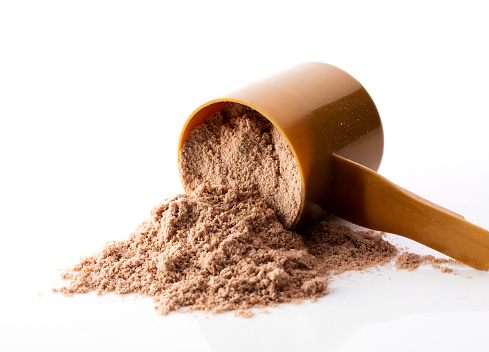Are you a fitness freak going to the gym daily and eating healthy?
If you are a daily gym-goer you might also look for the best protein supplement to have after a workout? But are they safe?
Why do you need protein powder?
Protein supplements can aid with muscle building. Taking the powder before and after a workout may aid in the healing process from resistance and endurance training. Protein powders are protein powders made from plants (soybeans, peas, rice, potatoes, or hemp), eggs, or milk (casein or whey protein). Other substances that may be present in the powders include added sugars, artificial flavors, thickeners, vitamins, and minerals. Protein content per scoop might range from 10 to 30 grams. Protein is found in higher concentrations in muscle-building supplements than in weight-loss pills. It may appear that mixing protein powder into a glass of milk or a smoothie is an easy method to improve your health. After all, protein is required for muscle growth and maintenance, bone strength, and a variety of other bodily processes. Furthermore, many elderly persons may not take adequate protein due to a loss of appetite.

Is it good or bad?
It’s a handy protein source that helps many individuals achieve their daily protein requirements. Of course, if you are sensitive to a certain type of protein or other substances in a protein powder, you will experience an allergic response. You should avoid such sort of protein powder in that scenario. Protein powder contents vary greatly between brands and types. While the FDA oversees dietary supplements like protein powder, manufacturers are responsible for reviewing the safety, efficacy, and labeling of their products.
This implies that protein powder and other dietary supplement labels may include deceptive ingredient or product information. In fact, one research discovered that many protein powders contained lower-cost proteins including chicken, rice, and soy. Though it is uncommon, protein powders may include dangerous compounds or drugs that are prohibited in sports. Fortunately, many respectable protein powder manufacturers employ third-party testing to establish the safety and transparency of their products. Choose a protein powder from a reliable brand that has undergone third-party testing. Make an effort to consume a well-balanced diet rich in protein-rich whole foods such as lean meats, poultry, eggs, beans, lentils, tofu, nuts, and seeds.
Why is protein powder good?
- Weight loss: In one research of 158 persons, those given whey “lost considerably more body fat and demonstrated higher preservation of lean muscle compared to subjects ingesting the control beverage.
- Anti-cancer properties: In the journal Anticancer Research, promising results for the use of whey protein concentrate in cancer treatment were reported. More investigation is required.
- Lowering cholesterol: In a research published in The British Journal of Nutrition, 70 overweight men and women were given whey supplements for 12 weeks and their lipid and insulin levels were assessed. “There was a substantial drop in total cholesterol and LDL cholesterol at week 12 in the whey group compared to the casein (group”),” they discovered.
- Asthma: Whey protein may boost immunological response in asthmatic youngsters. One small research including 11 children, published in the International Journal of Food Science and Nutrition, discovered that children with asthma who received 10 grams of whey protein twice daily for one month had a better immunological response.
- Blood pressure and cardiovascular disease: According to a study published in the International Dairy Journal, drinks containing whey protein dramatically decreased blood pressure in hypertensive individuals; their chance of developing heart disease or stroke was also reduced.
- Weight loss in HIV patients: According to research published in the journal Clinical and Investigative Medicine, whey protein may help minimize weight loss in HIV-positive individuals.

Why is protein powder bad?
Some persons who are sensitive to milk may be allergic to whey specifically. Whey protein does not usually produce any side effects when consumed in modest amounts. However, extremely high dosages can result in:
- cramping in the stomach
- decreased appetite
- nausea \headache\fatigue
- Acne may also be caused by consistent high dosages of whey protein. Whey protein is a unique dietary supplement that lacks a natural counterpart.
Some individuals argue that nutritionally refined diets like these pose hazards because, while they include a lot of nutrients, the balance is significantly skewed toward protein.

FINAL WORDS
So, is protein powder good for you? Yes, provided it is a high-quality, third-party-tested product that has little sugar and no dangerous ingredients. Protein powders may be incorporated into most eating plans and can assist you in meeting your health objectives. Keep in mind that protein powder is a dietary supplement. This indicates that it improves your diet. First and foremost, ensure that you are eating whole food proteins as part of a nutritious diet.

